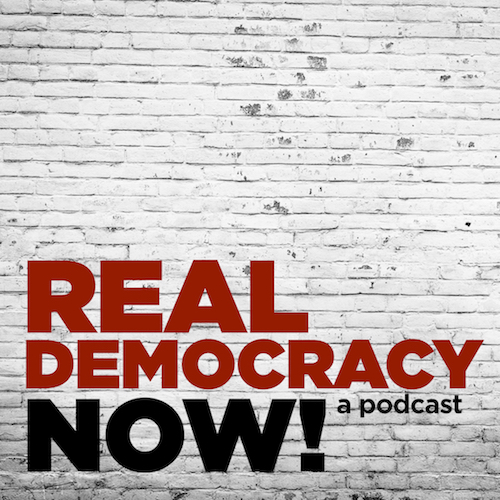In today’s episode I speak with four everyday people who have been participants in deliberative mini-publics in Canada, Australia and the United Kingdom. Each person has their own unique take on being a randomly selected participant in a deliberative mini-public, but they all agree they would recommend being part of a deliberative mini-public to family and friends.
First up is Ben McPeek who was a member of the Residents’ Reference Panel for the Davenport Community Rail Overpass project in 2015. This Reference Panel was commissioned by Metrolinx and designed and facilitated by MASS LBP. I spoke to Peter MacLeod from MASS LBP about their work on episode 6 of the podcast.
Next, I spoke with Lewis Adams who was a juror on the Infrastructure Victoria Citizens’ Jury in 2015. Infrastructure Victoria was developing a thirty-year infrastructure plan for the State of Victoria in Australia and ran a multi-faceted engagement program which included two concurrent citizens’ juries: one in the capital – Melbourne and the other in Shepparton in regional Victoria. Lewis was a juror on the regional Citizens’ Jury. The Infrastructure Victoria Citizens’ Jury process was designed by the newDemocracy Foundation and involved a range of facilitators (including some of the people who I spoke to on episode 11 of the podcast) under Nation Partners who were responsible for delivering the overall engagement process.
I also spoke with Caroline Victor who was a juror on the Cats and Dogs Citizens’ Jury in South Australia in late 2014. This citizens’ jury was established by the Dog and Cat Management Board to advise on measures to reduce the number of unwanted dogs and cats. This process was facilitated by DemocracyCo, whose co-founder Emily Jenke I spoke to on episode 10 of the podcast). Recruitment for this citizens’ jury was undertaken by the newDemocracy Foundation. I was working for newDemocracy Foundation at that time and managed the recruitment for this citizens’ jury. The Dogs and Cats Citizens’ Jury won the IAP2 Australasian Core Values Award in the environmental category in 2016.
And finally, I talked with Andy Holdup who was a member of the
Citizens’ Assembly South in Southhampton in the UK in 2015. Unlike the other three processes covered in today’s episode, which were all commissioned by government agencies to get input into decisions they were making, the two Citizens’ Assemblies run in Sheffield (Citizens’ Assembly North) and Southhampton (Citizens’ Assembly South) were commissioned by the
Electoral Reform Society with a number of academics interested in democratic reform as a project to demonstrate the value of engaging with everyday citizens on key governance issues, in this case the devolution agenda. In episode 8 I spoke with Professor Graham Smith one of the academics involved in the Democracy Matters project about these assemblies and in particular about the experimental aspect of the process where Citizens’ Assembly South included local politicians as well as citizens. And in episode 10 I spoke to Titus Alexander the lead facilitator for these Assemblies. The Democracy Matters process won the UK Political Studies Association Annual
Award for Democratic Innovation in 2016.
There are only two more episodes to come for Season 1. Next week I’ll be talking to Professors Graham Smith and Brigette Gießel about how they evaluate democratic innovations, including deliberative mini-publics and the following week I’ll be talking to a number of critics of deliberative mini-publics to get a different perspective on these democratic innovations. I hope you’ll join me for the final two episodes of Season 1 of Real Democracy Now! a podcast.
Check out this episode!
